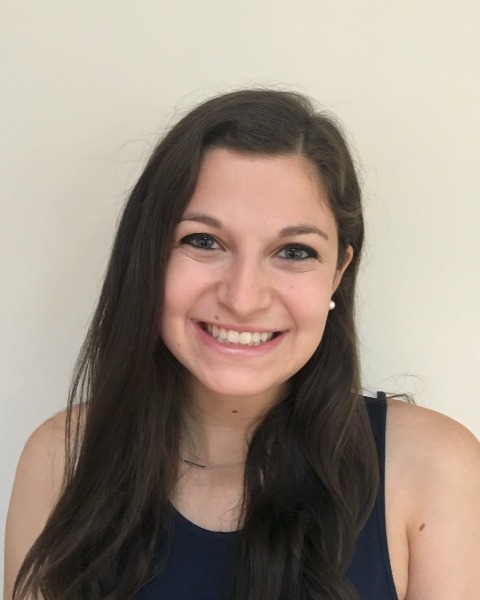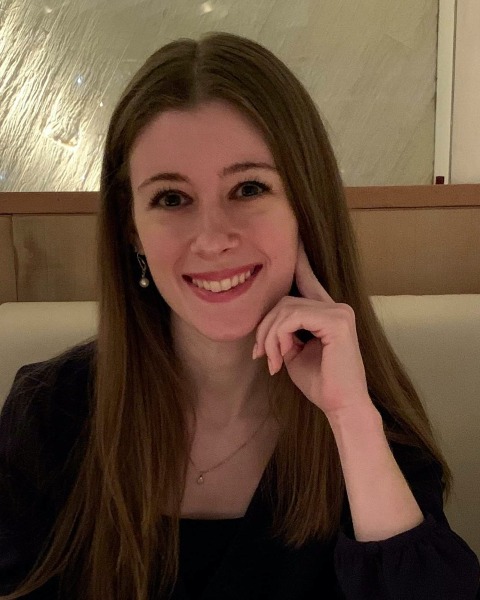Parenting / Families
(PS12-20) Engaging Fathers in I-PCIT Utilizing Group Didactics and Support to Promote Feasibility, Acceptability, and Positive Outcomes

Julia M. Weisman, M.A.
PhD Student
Hofstra University
New Rochelle, New York, United States- JL
Janice Lu, M.A.
Student Trainee
Hofstra University
Hempstead, New York, United States 
Cate Morales, M.A. (she/her/hers)
Student Trainee
Hofstra University
Hempstead, New York, United States- GG
Gabriella B. Goldentyer, M.A.
Student Clinician
Hofstra University
Hempstead, New York, United States - RH
Romola N. Hilerio, M.A.
Clinical Psychology Trainee
Hofstra University
Staten Island, New York, United States 
Nicole Lui, M.A.
Student
Hofstra University
Queens, New York, United States- RP
Ruby Paisner, M.A.
Co-therapist
Hofstra University
Great Neck, New York, United States - SR
Sarah Richman, M.A.
Doctoral Student
Hofstra University
New York, NY, New York, United States - SK
Sarah Koppelman, M.A.
Student
Hofstra University
New York, New York, United States - AW
Ariana Wasret, M.A.
Student
Hofstra University
Charlotte, North Carolina, United States - CW
Charles Williams, M.A.
Student Clinician
Hofstra University
Brooklyn, New York, United States 
Phyllis S. Ohr, Ph.D.
Associate Professor
Hofstra University
Levittown, New York, United States
Author(s)
Co-Author(s)
Fathers make unique and important contributions to multiple aspects of child development, and yet barriers to father engagement in behavioral parenting interventions exist. Even when fathers do participate, fathers have been found to be apprehensive at the start of treatment, and program adherence is often problematic, with low attendance and high attrition rates. Better engagement strategies are necessary to keep fathers motivated in treatment. The current study aims to address how to best engage fathers in Parent Child Interaction Therapy (PCIT) by implementing specific father engagement strategies into treatment.
This study utilized a fathers only workshop at the onset of treatment called DAD (Dads Additional Didactic). The workshop included father-specific content, didactic instruction, and focused on group process to increase support amongst the fathers. DAD also continued during the initial phase of PCIT, Child Directed Interaction (CDI), for shorter biweekly virtual group meetings. There was a psychoeducational comparison group, where these fathers had their in-person workshop and bi-weekly sessions focused exclusively on didactic learning of child development, instead of the father-focused content and group processing in the DAD group.
There were 12 fathers (n=12) that were recruited to participate. After initial attrition from being unable to attend the in-person workshop, five fathers participated in DAD (n=5) and four fathers participated in a psychoeducational group (n=4). It was hypothesized that fathers in DAD would have improved outcomes compared to fathers in the comparison group based on attrition and attendance rates, homework completion, and treatment satisfaction. Since little data has been found exclusively on fathers in PCIT, it was also hypothesized that involvement in treatment would increase fathers’ competence, skill usage, and parent-child relationship quality. There is also little known about the type of play fathers engage in, and this study explored the different ways fathers play with their children.
Visual inspection, utilization of t-tests, and the Wilcoxon test were used to test the hypotheses. Following the workshop, there was no attrition from the study and high attendance for CDI coaching sessions (DAD group participants 100% and psychoeducation participants 87.5%). Acceptability was determined by ratings on the Therapy Attitude Inventory, which found clinical meaningfulness for higher ratings in the DAD group compared to psychoeducation (t(7) = 1.68, p=.14, d= 1.09). All fathers showed significant increases in PRIDE skills (t(8) = 8.46, p < .0001) and decreases in AVOID verbalizations (t(8) = 7.67, p < .0001). Visual inspection showed several fathers in DAD showed quicker and greater skill usage. The results from the current study highlight the need for more fathers to be involved in PCIT and father engagement strategies are necessary to bring fathers into treatment. Fathers enjoyed learning concepts with other fathers and future studies should incorporate group process models into care.

.png)
